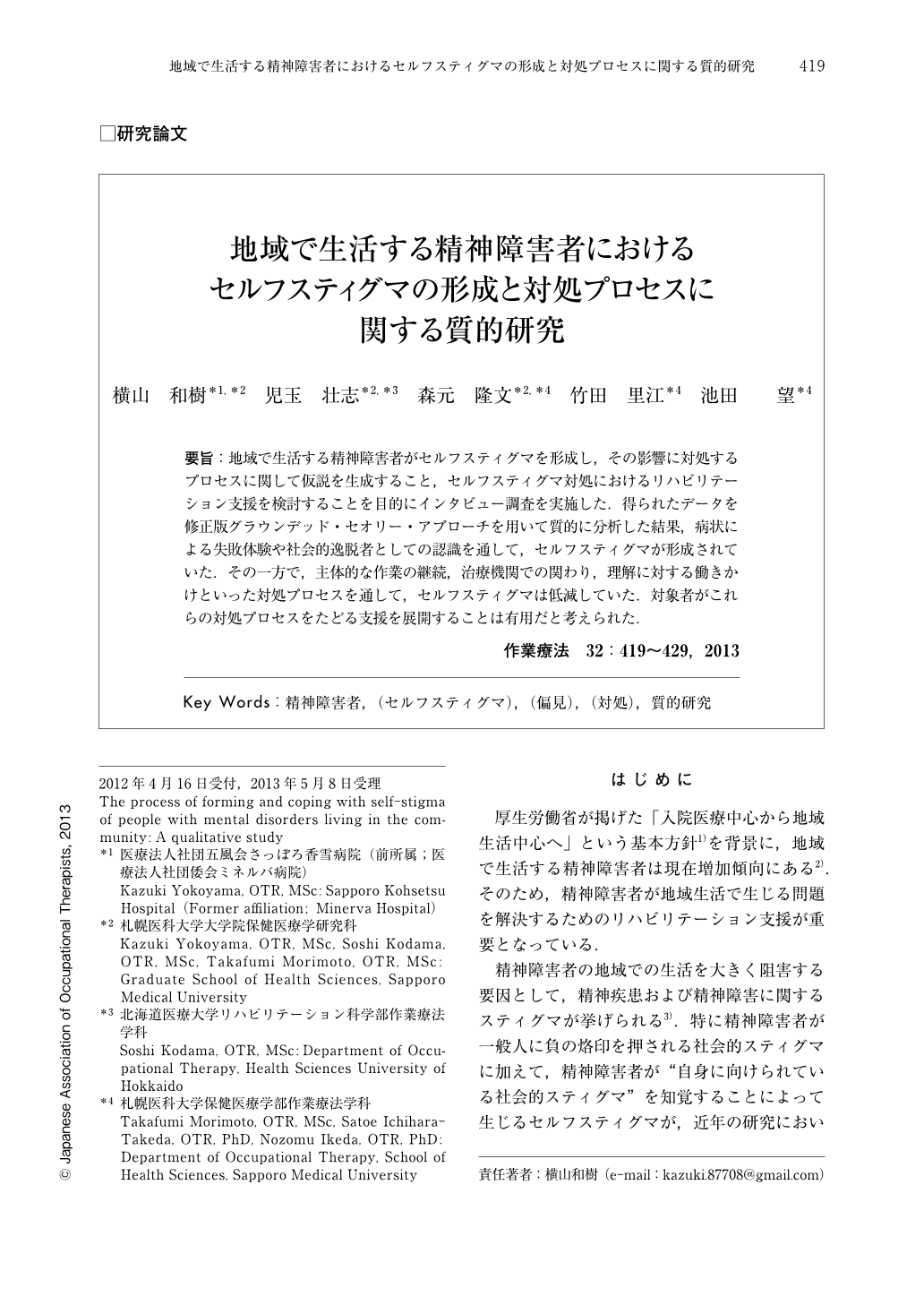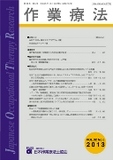Japanese
English
- 販売していません
- Abstract 文献概要
- 1ページ目 Look Inside
- 参考文献 Reference
- サイト内被引用 Cited by
要旨:地域で生活する精神障害者がセルフスティグマを形成し,その影響に対処するプロセスに関して仮説を生成すること,セルフスティグマ対処におけるリハビリテーション支援を検討することを目的にインタビュー調査を実施した.得られたデータを修正版グラウンデッド・セオリー・アプローチを用いて質的に分析した結果,病状による失敗体験や社会的逸脱者としての認識を通して,セルフスティグマが形成されていた.その一方で,主体的な作業の継続,治療機関での関わり,理解に対する働きかけといった対処プロセスを通して,セルフスティグマは低減していた.対象者がこれらの対処プロセスをたどる支援を展開することは有用だと考えられた.
The purpose of this study was to investigate the process of forming and coping with self-stigma by people with mental disorders living in the community and to discuss interventions against self-stigma for psychiatric rehabilitation. We focused on “people with mental disorders living in the community”, and conducted interviews. A model of the process of forming and coping with self-stigma was constructed, and data were analyzed using the Modified Grounded Theory Approach. The findings of the interviews indicated that the major coping mechanisms related to reducing self-stigma are “ongoing independent-minded occupations”, such as “voluntarily engagement in interesting, livable, or well-suited occupations”, and “communication in psychiatric facilities”, such as “solving problems through the sharing of experiences and counseling with peers and healthcare workers”. Patients felt that their abilities were increasing through having their experiences recognized by others, and this led to an affirmative evaluation of the self. In addition, “approach to understanding”, such as “planning the reduction of public stigma in others through discourse of one's illness and the enlightenment of others in regard to one's illness” was seen as a coping mechanism related to reducing self-stigma. When intervening against self-stigma, it seems important that healthcare workers accept the negative reactions of self-stigma and negative coping, and support those with mental disorders in using the above-mentioned coping mechanisms.

Copyright © 2013, Japanese Association of Occupational Therapists. All rights reserved.


